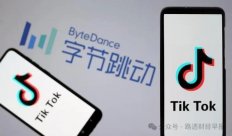On May 8th, local time, US Secretary of Commerce Raymond clearly stated during the hearing of the Congress of the House of Representatives of the House of Representatives that the government led by Bayeng's leadership of the Chinese advanced technology capabilities, "National Security is preferred by commercial interests. ""I told semiconductor companies that they cannot sell chips to China. This deprives their income, but first of all, the most important thing is national security." Raymond Duo said.
South China Morning Post reported that just the day before (May 7), a number of foreign media quoted the news that the Bayeng government further tightened its export restrictions on Huawei and revoked the U.S. chip company Qualcomm and Intel Company.Huawei sells semiconductors' licenses.The U.S. Department of Commerce confirmed on the same day that it has "revoked some export permits to Huawei", but did not disclose which US companies were affected.

When he was asked to comment on the incident, Raymond Chan claimed that "Huawei is a risk" and did not mention Qualcomm or Intel directly."Huawei is a threat, and artificial intelligence is also our focus at the same time." She said: "As we get more data about threats, we will make changes to strengthen control, including revoking the previous license issued."
According to anonymous sources, the latest measures for Huawei for the U.S. government will affect the supply of Huawei mobile phones and laptop chips.Reuters mentioned that last month, Huawei released the first laptop Matebook X Pro that supports artificial intelligence.As the computer is equipped with Intel's new Core Ultra 9 processor, the United States Republican Members criticized the US Department of Commerce to "turn on the green light" for Intel's export of Huawei.
At the hearing on the day, Raymond's hype rendered that we "woke up every day to think of how we should strengthen control to ensure that China cannot obtain our most advanced chips, artificial intelligence, quantum and other technologies."
South China Morning Post pointed out that in recent years, the US government has included many Chinese companies including Huawei in many blacklists.In addition to export restrictions, Biden also signed an administrative order to restrict investment in China in August last August, and prohibits the US dollar from flowing into Chinese semiconductors, microelectronics, quantum computing and artificial intelligence areas.
As the US presidential election is approaching in November this year, Biden further speculated to rendering his views on the so -called "excess capacity of production capacity" in China, claiming to take measures to protect American manufacturers from subsidies from Chinese government and caused it to leadThe impact of excess product.
Last month, Biden said in a campaign and said: "Because the steel produced by Chinese steel companies far exceeds China's needs, (China) eventually turned to the world at an unfair low price to the world.The market dumping excess steel, they are cheating. "
At the hearing, Raymond Duo told Member present that "very worried" in China may harm the interests of American manufacturers through dumping electric vehicles, traditional chips and key minerals.She added that the US Department of Commerce is working closely with the US Trade Representative Office to "determine which aspects are the most vulnerable and what actions we can take."
Raymondo also mentioned a survey on the US semiconductor industry supply chain and defense industry a few months ago, claiming to solve the so -called "national security concerns" from Chinese chips.She added that she is looking for "any evidence of China's reduction in prices, which will distort the market so that American chip companies cannot participate in competition."
In response to the news of the U.S. government revoked some enterprises 'export licenses to Huawei, the Ministry of Commerce in China responded on May 7 that the concept of generalization of the United States' generalization of national security has politically and trade issues, abuse export control measures, and target specific Chinese enterprises for specific Chinese enterprisesRepeated measures to sanction and suppression.China has resolutely opposed it.
The United States restricts the export of pure civilian consumer chip products to China and implemented disconnected supply to specific Chinese enterprises. This is a typical economic coercion, which not only violates the rules of the WTO, but also seriously damages the interests of American companies.What the United States has done has seriously violated the promise of "not seeking to decompose with China" and "not hindering China's development", and runs counter to its "accurate definition of national security".China will take all necessary measures to firmly safeguard the legitimate rights and interests of Chinese enterprises.



